In our everyday lives, a good night’s sleep is crucial for overall health and well-being. But what happens when this peaceful slumber is disrupted by a peculiar occurrence known as night sweats? This phenomenon can be uncomfortable, confusing, and sometimes indicative of underlying health issues. One of the common triggers of night sweats links to something many of us may overlook: alcohol use. As we delve into night sweats and alcohol use, we’ll unravel their complex relationship, shedding light on how they interact within the body and impact our sleep quality. Moreover, we’ll provide insights into various interventions, such as the help offered by the esteemed drug and alcohol rehab in West Virginia, which can guide individuals in managing these conditions effectively.
Understanding Night Sweats
Night sweats, also known as nocturnal hyperhidrosis, are characterized by excessive sweating during sleep, often soaking your clothing and bedding. It’s a different experience from simply feeling warm because of a heated room or heavy blankets; night sweats are typically associated with an underlying health condition or a specific trigger. One common, yet frequently overlooked, instigator of night sweats is alcohol use. As the experts at the rehab in Cambridge OH can attest, understanding the connection between night sweats and alcohol use is a critical first step toward effective management and treatment. Throughout this discussion, we will delve deeper into this connection and provide crucial insights into its mitigation.
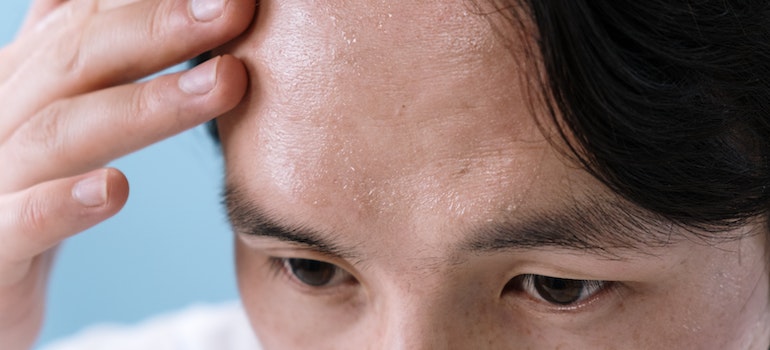
Alcohol Consumption and Night Sweats: Unraveling the Connection
Alcohol, while often enjoyed socially, is a substance that can disrupt normal body functions, leading to various health complications, including night sweats. In order to deal with this issue, we need to understand:
- The psychology of alcohol consumption
- The link between alcohol and sleep patterns
The Physiology of Alcohol Consumption
When consumed, alcohol gets absorbed into your bloodstream and affects the central nervous system, impacting body temperature regulation, among other physiological processes. This disruption can lead to overheating, causing the body to react by producing sweat to cool down, resulting in night sweats. Experts at the rehab near Athens OH also stress that heavy drinking, in particular, amplifies this reaction, making night sweats more likely.
Alcohol and Sleep Patterns
Further complicating matters, alcohol can interfere with sleep patterns. Though it might initially cause drowsiness, as the body metabolizes the alcohol, it may disrupt your sleep, often during the Rapid Eye Movement (REM) stage, when dreams occur. This disturbance can cause the body to react with a surge of adrenaline, which can increase heart rate, blood pressure, and body temperature – again, potentially causing night sweats.
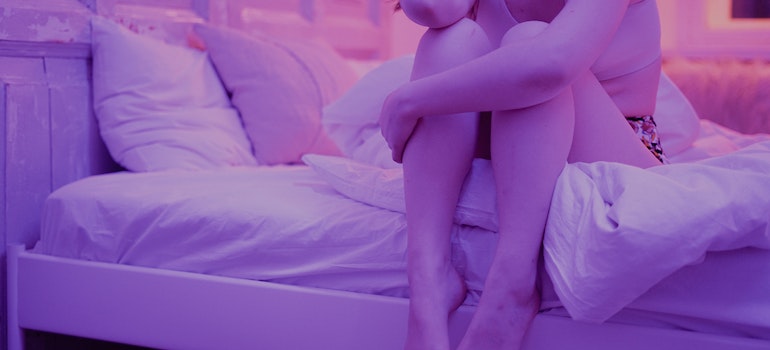
Alcohol as a Diuretic: A Hidden Culprit
One factor that can exacerbate the occurrence of night sweats is alcohol’s role as a diuretic. This characteristic, often overlooked, can significantly contribute to the problem.
Alcohol’s Diuretic Effect
When we consume alcohol, it triggers a diuretic effect, causing the body to produce more urine and lose fluids more rapidly. This dehydration can lead to a range of symptoms, one of which is, indeed, night sweats. As the body becomes dehydrated, it can overheat, increasing sweating as it attempts to cool down.
The Dehydration Cycle
This dehydration cycle can lead to a state where the body continuously struggles to regulate its temperature, creating a scenario where night sweats become more likely. And as clinicians who specialize in family therapy for addiction would point out, these physical discomforts can add another layer of difficulty to the already challenging journey of managing alcohol use.
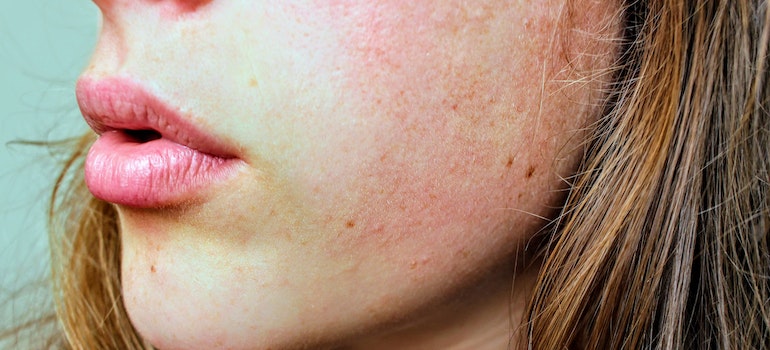
Hormones, Alcohol, and Night Sweats
Another important aspect to consider in our understanding of night sweats and alcohol use is the impact of alcohol on the body’s hormones. This interaction is complex and can significantly contribute to the occurrence of night sweats.
Alcohol’s Impact on Hormone Regulation
Alcohol is known to interfere with the hypothalamus, the part of the brain that controls the body’s temperature through hormone regulation. When alcohol is consumed, it can disrupt this delicate balance, leading to temperature fluctuations and the potential onset of night sweats.
The Hormonal Cascade
This disruption can result in a hormonal cascade where stress hormones such as cortisol are released, potentially leading to increases in heart rate, blood pressure, and body temperature – all of which can trigger night sweats. As practitioners of dialectical behavior therapy for addiction will affirm, it’s crucial to understand these physiological mechanisms when addressing alcohol-related health issues.
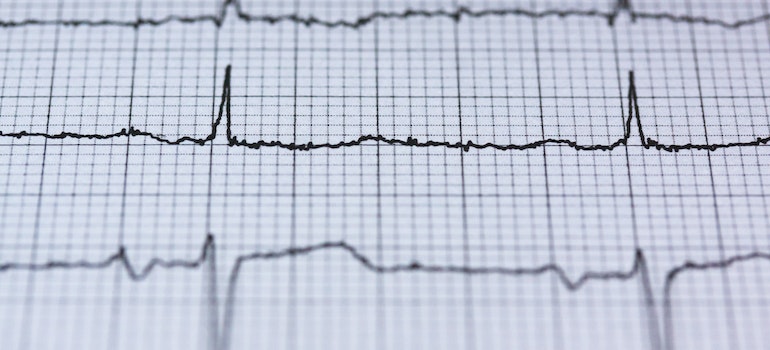
Night Sweats as a Symptom of Alcohol Withdrawal
A key point in the conversation around night sweats and alcohol use is the role of withdrawal. When a person who frequently consumes alcohol attempts to cut back or quit, night sweats can emerge as a symptom.
Alcohol Withdrawal and Night Sweats
Alcohol withdrawal refers to the symptoms that may develop when a person that regularly drinks excessive amounts of alcohol stops or significantly reduces their alcohol consumption. These symptoms can range from mild to severe; one such symptom often reported is night sweats.
Understanding Withdrawal-Induced Night Sweats
These withdrawal-induced night sweats occur as the body reacts to the absence of alcohol it has grown accustomed to. As practitioners who utilize cognitive behavioral therapy for substance use disorders would explain, the body is attempting to recalibrate its systems without alcohol, and this transition period can be physically challenging.
Recognizing the role of withdrawal in the manifestation of night sweats is a crucial component of understanding the broader context of alcohol’s impact on the body. In doing so, individuals can be better prepared to navigate the challenges of reducing alcohol consumption.
Other Contributing Factors to Night Sweats: Beyond Alcohol
While alcohol use can significantly contribute to night sweats, it’s crucial to remember that it’s not the only factor. Numerous other elements can interact with alcohol consumption, exacerbate its effects, or independently lead to night sweats. To fully understand the phenomenon of night sweats and alcohol use, we must consider these various components.
Medications and Night Sweats
Some medications can induce night sweats as a side effect. For instance, certain antidepressants, hypoglycemic agents for diabetes, and hormone-blocking drugs used to treat certain cancers can cause night sweats. It’s worth noting that the combination of such medications and alcohol could potentially intensify night sweating episodes.
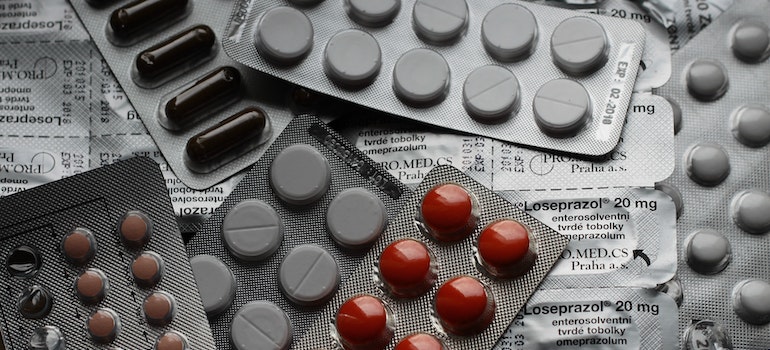
Underlying Health Conditions
Several health conditions could also contribute to night sweats. These can range from infections like tuberculosis and HIV to hormonal disorders like hyperthyroidism or certain cancers. Night sweats may be one of several symptoms indicating an underlying condition in these cases. Moreover, in individuals who consume alcohol, these conditions may interact with alcohol’s effects, making the night sweats more severe.
Co-Occurring Disorders
People dealing with co-occurring disorders, where they experience a substance use disorder alongside a mental health disorder, can also be more susceptible to night sweats. Anxiety disorders, for example, can trigger night sweats, which might be more frequent or severe in individuals who consume alcohol. It’s worth noting that addressing these co-occurring disorders requires a comprehensive treatment approach focusing on substance use and mental health disorders.
The Role of Age and Menopause
Age can also be a significant factor in the occurrence of night sweats. For instance, menopause is a common cause of night sweats in women. During menopause, hormonal changes can lead to hot flashes and night sweats. While this is a natural part of the aging process, alcohol use can exacerbate these symptoms, making them more intense or frequent.
Lifestyle Factors
Finally, certain lifestyle factors can contribute to night sweats. These can include factors like diet, stress levels, and sleep habits. For example, consuming spicy food or caffeine close to bedtime can trigger night sweats, as can high stress or anxiety levels. While these factors may not directly relate to alcohol use, they can interact. An individual who consumes alcohol might find that these lifestyle factors exacerbate the intensity or frequency of their night sweats.

Managing Alcohol-Related Night Sweats
Having explored the complexities of night sweats and alcohol use, it becomes clear that effective management involves more than simple symptom control. It’s about addressing the root causes and contributing factors to ensure long-term relief.
Consulting with Healthcare Professionals
If night sweats persist or significantly impact sleep quality, it’s crucial to consult with a healthcare professional. This consultation could involve a thorough evaluation to rule out underlying health conditions or help identify the precise triggers. Physicians, therapists, and counselors specializing in different forms of addiction therapy can provide vital assistance in this regard.
Identifying and Addressing Triggers
The next step in managing night sweats related to alcohol use involves identifying and addressing potential triggers. This process could involve maintaining a sleep diary to track alcohol consumption, dietary habits, stress levels, and medication use. Once these triggers are identified, individuals can work with their healthcare provider to develop a tailored management strategy.
Creating a Suitable Treatment Plan
This strategy might involve a multi-faceted approach, incorporating lifestyle changes, medication adjustments (if necessary), and possibly counseling or therapy. Understanding the unique nature of each person’s situation is key here, which is why treatment plans are often individualized.
Leveraging Addiction Therapy
Managing night sweats related to alcohol use can also be possible with the help of different forms of addiction therapy. These therapies can help individuals understand their alcohol use, develop healthier coping strategies, and address any underlying mental health concerns contributing to their night sweats. By combining these therapies with medical treatments and lifestyle changes, individuals can effectively manage their night sweats and improve their overall health.

Adopting Healthier Lifestyle Habits
Addressing night sweats and alcohol use goes beyond mere symptom management. Adopting healthier lifestyle habits can provide a proactive approach to managing night sweats and improving overall health, particularly for those dealing with addiction to alcohol.
Healthy Diet and Hydration
Nutrition plays a critical role in our overall health and well-being. Consuming a balanced diet rich in fruits, vegetables, lean proteins, and whole grains can help the body function optimally and may help mitigate the occurrence of night sweats. Additionally, because alcohol can dehydrate the body, maintaining proper hydration is crucial to counterbalance this effect and help regulate body temperature.
Regular Exercise
Engaging in regular physical activity can also have a positive impact. Exercise helps regulate body temperature but also aids in stress management and supports overall health. However, it’s worth noting that intense exercise close to bedtime might trigger night sweats in some individuals, so consider timing and intensity.
Stress Management Techniques
Managing stress effectively is another essential aspect of adopting healthier lifestyle habits. High-stress levels can trigger night sweats and contribute to poor sleep. Techniques such as yoga, meditation, deep breathing, and mindfulness can help manage stress levels and promote better sleep quality.
Moderation in Alcohol Consumption
For those struggling with addiction to alcohol, moderation or abstention is a critical step toward managing night sweats. Cutting back or quitting can significantly reduce the frequency and severity of night sweats. This step, however, can be challenging and often requires professional support, particularly for those dealing with addiction.
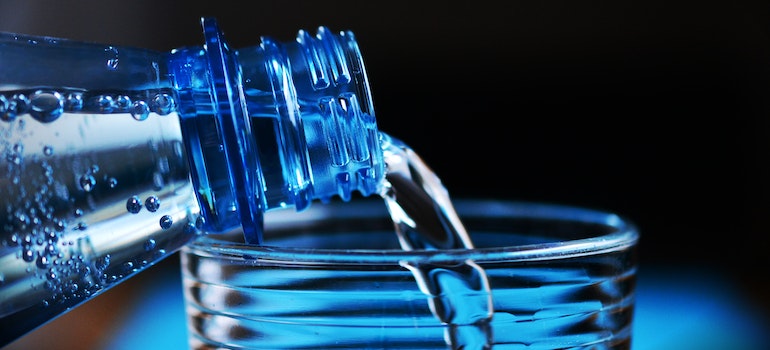
Seeking Professional Help: A Crucial Step
The journey towards managing night sweats and alcohol use can be challenging, particularly for those with alcohol addiction. In such situations, seeking professional help becomes a crucial step.
Healthcare professionals can provide valuable insights into the causes of night sweats and guide individuals toward effective management strategies. Moreover, they can help identify any underlying health conditions that may be contributing to the occurrence of night sweats.
Role of Professional Support in Addiction
For those grappling with alcohol use, professionals specializing in addiction treatment can offer invaluable support. They can provide comprehensive treatment plans encompassing medical, psychological, and lifestyle interventions, helping individuals navigate the complexities of alcohol addiction.
Handle Night Sweats and Alcohol Use with Alamo
Understanding the connection between night sweats and alcohol use is vital to improving health, particularly for those struggling with addiction. While night sweats can be uncomfortable and disruptive, it’s important to remember that they can be managed. With a comprehensive approach encompassing professional guidance, effective treatment strategies, and healthier lifestyle habits, you can combat night sweats and take significant strides to battle your addiction. Remember, you’re not alone in this journey, and with the right support, you can achieve improved health and a higher quality of life. Alamo Behavioral Health is always at your disposal.



